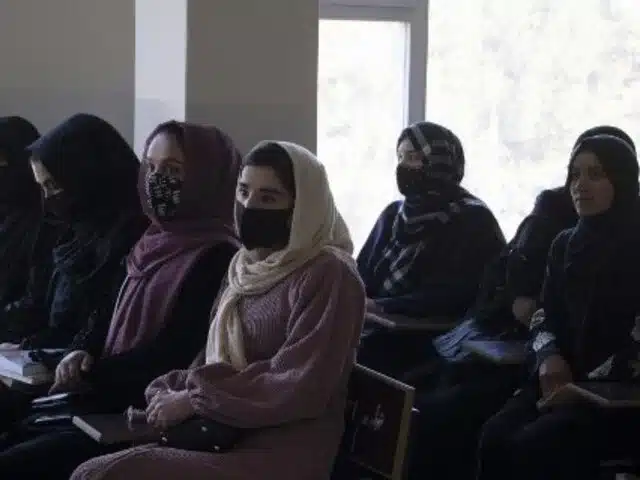The Deputy of Youth in the Ministry of Information & Culture clarified that the IEA temporarily restricts women’s education. The IEA is committed to creating a Sharia-based education structure for women.
Mohammad Yunus Rashid said that the Islamic Emirate is trying to provide a women’s education structure. This structure will adhere to Sharia principles in the country.
Mohammad Yunus Rashid stated that the Islamic Emirate is developing a policy for women’s education. He emphasized that the Islamic Emirate upholds the rights that Islam grants to women.
Jawed Khapalwak, an Uruzgan resident, asked, “For how long will the door of education remain closed for our sisters?”
Meanwhile, some youth called on the current government to provide work facilities for the young generation to prevent illegal immigration.
Wali Mohammad Pakhla, an Uruzgan resident, reported that “currently, there is one commission in all departments operating in Uruzgan, and all previous government staff have been fired from these departments.”
“Why does a commission fire an employee, according to which right, it just happens in Uruzgan, not across the country, why?” said Akbar Khan, an Uruzgan resident.
Jumma Gul Hemmat, an Uruzgan resident, asked, “If I studied at school and university for sixteen years in the previous government in this country, have I committed a crime or sinned?”
SEE ALSO: https://southasiatimes.org/girls-education-in-afghanistan/
Meanwhile, the Deputy of Youth of the Ministry of Information and Culture said they recently began working on a plan. This plan aims to provide work for more than three million young people in the country.
Earlier, youth in the country cited unemployment as a major reason for emigrating. They also criticized the appointment of non-specialized people to institutions.
Original Source: Tolo News



![Afghan men search for victims after a Pakistani air strike hit a residential area in the Girdi Kas village, Nangarhar province on February 22, 2026. [Aimal Zahir/AFP/Getty Images]](https://southasiatimes.org/wp-content/uploads/2026/02/gettyimages-2262391441.webp)


